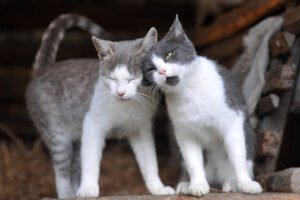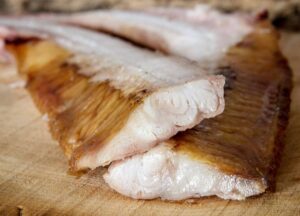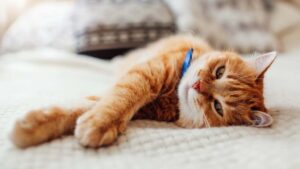Do Mom Cats Eat Their Own Kittens? (7 Reasons)
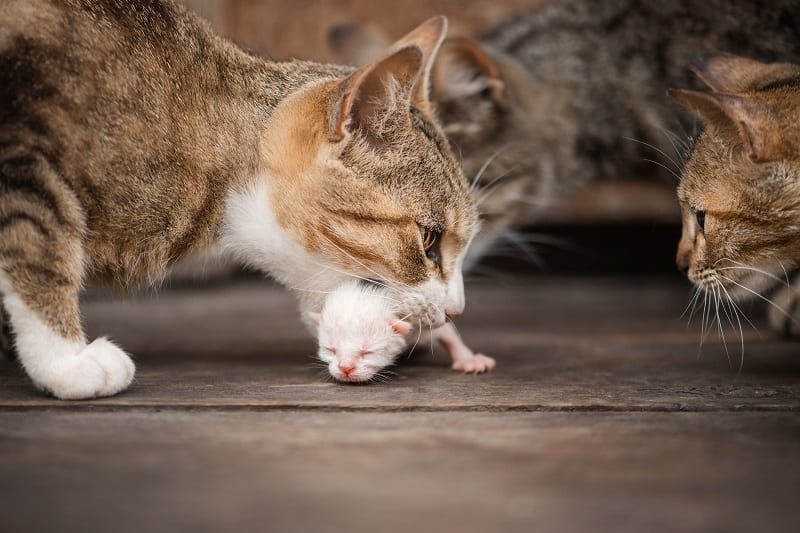
It’s a question that many new cat owners have asked themselves at some point. Do mom cats eat their own kittens? This disturbing myth has been around for years, but is there any truth to it? In this article, we’ll explore the topic in-depth and separate fact from fiction.
Do Mom Cats Eat Their Own Kittens?
Let’s get straight to the point. While it’s not unheard of for a mom cat to eat her own kittens, it’s certainly not common. In fact, it’s more or less quite rare (especially amongst indoor cats). Most mother cats are incredibly protective of their babies and will do everything in their power to keep them safe and healthy.
So why does this myth persist? One reason may be that people have a tendency to remember and talk about the negative or unusual things that they hear, rather than the more commonplace and mundane. Additionally, when a mother cat does eat one of her kittens, it’s often for a specific reason, such as illness or deformity, rather than just randomly. However, these reasons may not always be apparent to an outside observer.
In the next section, we’ll delve deeper into why a mother cat may eat one of her own kittens. We will also follow up with a section on what you can do to prevent this from happening.
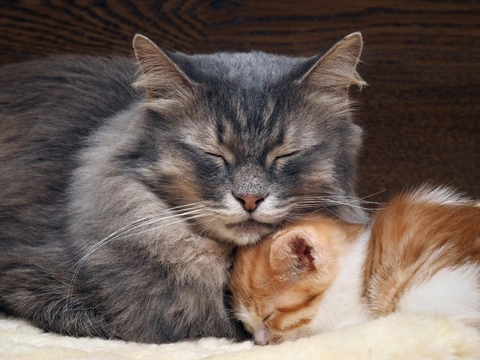
7 Reasons Why Mom Cats Eat Their Own Kittens
Here are some common reasons which can drive a Mother Cat into eating her own kittens.
Instinctual behavior to eliminate sick or weak kittens:
Mother cats are hardwired to protect their litters, and one way they do this is by identifying and removing any weak or sickly kittens. In the wild, vulnerable kittens would attract predators, which could put the entire litter at risk. So, if a mother cat detects that one of her kittens is struggling, she may instinctively eliminate it. This raises the survival chance of the rest of the litter.
Stillborn Kitten:
Unfortunately, sometimes a kitten may be born stillborn or die shortly after birth due to complications or health issues. In these cases, the mother cat may attempt to remove the dead kitten from the nest, either by eating it or carrying it away. While it may be distressing for cat owners to witness, it is a natural response for the mother cat to remove any deceased offspring.
It also helps the mother cat replenish her strength and energy. Childbirth can be a long process, and the mother cat might not get the time to hunt (if she’s feral).
Lack of maternal instinct or experience:
Not all mother cats are instinctually good caregivers. Some cats may have difficulty recognizing the needs of their kittens, which could lead to neglect or rejection of the litter. In extreme cases, a mother cat may even turn on her kittens, exhibiting aggressive or harmful behavior towards them.
There’s also a chance she doesn’t feed them properly (first time mother), leading to their demise. As mentioned in the previous reasons, a mother cat will commonly consume a dead kitten.
Presence of strong predator instincts:
Even domesticated cats retain strong predator instincts, and these can sometimes kick in during the postpartum period. If a mother cat feels threatened or stressed, she may lash out at her kittens or even view them as potential prey. This behavior is more likely to occur in cats who have had limited exposure to humans or have been feral.
If there are other dangerous predators around, such as dogs or even male cats, this will cause the mother cat to feel threatened. She may then eat some of the kittens to reduce the size of the litter, to better protect/move them around.
Stressful environment:
Cats are sensitive creatures, and a stressful environment can have a significant impact on their behavior. If a mother cat is feeling anxious, uncomfortable, or threatened, she may react by lashing out at her kittens. Stressful events such as moving to a new home or the presence of new animals in the household can trigger this behavior.
Malnutrition:
A mother cat needs proper nutrition to produce milk and care for her kittens. If she is not getting enough to eat or is not receiving the necessary nutrients, she may not be able to provide for her litter adequately. This can lead to neglect or rejection of the kittens, and in extreme cases, the mother may even resort to eating her young.
Mother Cat doesn’t recognize her kittens:
In rare cases, a mother cat may not recognize her own offspring. This can occur if the kittens were born in a location different from where the mother was preparing to give birth or if the mother is suffering from a medical condition that affects her sense of smell.
If a mother cat does not recognize her kittens, she may exhibit aggressive or harmful behavior towards them. Another commonly cited reason, is when the kitten becomes overly handled by humans. This causes the scent of the kitten to be disturbed, which can cause the Mother cat to not recognize it anymore.

Preventing Mother cats from killing their own Kittens
While it’s not always possible to prevent a mother cat from killing her kittens, there are steps you can take to reduce the likelihood of it happening. Here are some tips to prevent mother cats from killing their own kittens:
- Provide a stress-free environment: A stress-free environment can make a significant difference in the mother cat’s behavior. A quiet and comfortable environment can help reduce her stress levels, which in turn may reduce the likelihood of her killing her kittens. Providing a separate and quiet space for the mother and her kittens can help create a stress-free environment.
- Ensure the mother cat has a balanced diet: A healthy and balanced diet is essential for the mother cat’s physical and emotional health. Malnutrition can lead to aggressive and erratic behavior. Providing a high-quality and balanced diet can help the mother cat produce healthy and strong kittens and reduce the likelihood of her killing them.
- Monitor the mother cat and her kittens: Keeping a watchful eye on the mother cat and her kittens can help you notice any changes in her behavior. You can intervene early before the situation gets out of hand. If you notice any signs of aggression, seek help from a veterinarian or an animal behaviorist.
- Introduce the mother cat to her kittens gradually: In some cases, the mother cat may not recognize her kittens. Introducing her to her kittens gradually and carefully can help reduce the risk of her attacking them. This sounds a bit unusual, but can happen if the kittens had to be removed from the womb through surgery (C-section).
- Get the mother cat spayed: Spaying your cat can help prevent unwanted litters, which can lead to overcrowding and stress. Spaying can also help reduce the risk of aggression and other behavioral issues.
Conclusion
In conclusion, while it is not unheard of for a mother cat to eat her own kittens, it is not common, and there are often reasons behind it, such as illness or deformity. Indoor cats are less likely to suffer from any of these reasons, so you should be good. This information might help you save the kittens of a feral cat though!
